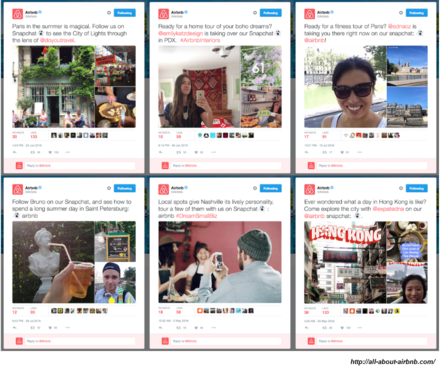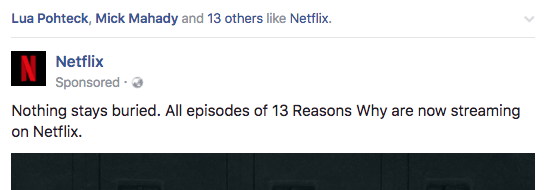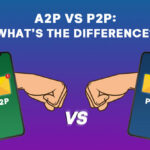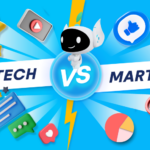
Have you ever bought something that your trusted friend swears by?
Have you found yourself purchasing that heavily-promoted juicer on social media when you see your friend engaging on the ads? Even if you’re not into juicing your own fruits?
Yes, that is the power of social proof. It happens in all sorts of ways – either subtle or obvious – and can hold the power to shift a consumer’s behavior (especially purchasing) to the next stage.
Social proof can work wonders for your business, regardless of whichever field or industry you’re in. People don’t like FOMO and that’s the value that social proof drives. It’s also a fantastic practice for CRO!
Read more: Quick & Easy CRO Tactics to Digital Market Your Business
But first, let’s explore some quick roundups on what it is and what it looks like.
What is social proof?
Operating on the principle that the “Majority Knows Best”, social proof is the idea that customers will adjust their purchasing behavior around what trusted others do or buy.
Did you know?
A report by Nielsen even went as far as to suggest over 92% of customers believe the reviews by their friends and family over advertising.
Shocking, we know. That doesn’t mean your business can afford to keep advertising on the back burner, though!

How does social proof impact digital marketing efforts?
Is your landing page strategy not working out quite as well as you intended it to? Customers seem to be interested in your product but you never seem to convert as many eyeballs?
It could all boil down to poorly-executed social proof in your communication channels, particularly landing pages, ads, or the brand’s social media accounts.
Types of Social Proof You Should Know
According to business coach Bailey Richert, there are more than a dozen types of social proof, but here are some you should know (and capitalize on):
- Expert: The stamp of approval by a renowned expert in the industry that your product exists in. For example, having a quote about your makeup product by a well-known cosmetic chemist.
- Celebrity: When a celebrity endorses your products. This is one of the most common forms of social proof, as audiences tend to imitate and revere their favorite celebrities.
- User: This social proof refers to when a customer shares reviews based on their experiences using your products or services. For example, the customer testimonials on your brand’s Facebook reviews.
- The wisdom of the crowd: Capitalizing on FOMO. Occurs when a large group seems to endorse your brand. For example, having over a million followers on social media elevates your brand’s credibility and builds trust to purchase.
- The wisdom of your friends: This occurs when you see your friend talking highly of a product or following the brand’s social media/interacting with the content.
- Certification: This occurs when an authoritative figure gives your brand the stamp of approval. For example, the Halal certificate from the Malaysian Ministry or the blue checkmark on Twitter.

Did you know?
Buyers require an average of 40 online reviews before believing the brand’s star rating.
Quick & Easy Ways to Use Social Proof in Your Marketing
-
Have a social media takeover by experts
Inviting leading renowned figures in your industry helps build your credibility and evokes the halo effect of trust (tap into the positive association their followers have).
In order to effectively run an engaging social media takeover, it’s vital to execute the following steps:
- What do you want audiences to take away from the conversation with the expert?
- Engaging the crowd during the takeover is necessary, what do you wish to learn about the audience? This can add to your brand’s data of consumers.
- Build the relationship between the audience and YOUR BRAND, not only the expert. The key is through enforcing narratives and messages that showcase the expert speaking on behalf of the brand, not just for their own personal agendas (if any).
This can form a win-win situation between the expert and your brand, both may profit from the shared exchange of representing each other’s platform.

-
If your brand gets a mention, show a little appreciation!
This happens quite frequently in today’s digital age, where speed in serving customers take precedence. However, showing a little gratitude for every positive (or negative) feedback you may have can go a long way to growing your brand.
In the eyes of consumers, associating a face or a human identity with a brand name is almost inconceivable.
By reacting as a human does, even a small remark like “Thank you for the warm feedback! We hope to continue serving you the best!” or “We’re sorry you had a bad experience. Tell us about it, we would like to fix your day!” shows your customers that:
- There is a human interacting with them on the other side, not a bot
- The brand CARES about their experience
- They believe someone listens to their comments to improve any negative experience faced

What’s extra nice about this is they care enough to thank all 124,000 of their followers who voted.
-
Target the friends of your Facebook page fans with your best Facebook Ads
Here’s an easy-to-implement strategy if you have a sufficient budget to spend on Facebook Ads.
Operating on the principle that the friends of your current Facebook fans may also enjoy/like your products, reach newer audiences that you may end up converting to lifelong fans.

Facebook will automatically add the wisdom of a friend’s social proof for you, so when a friend sees the ads, they also see their friends interacting (liking) the page as well.

This isn’t a lead magnet.
But us as your digital marketing agency? You bet!
It’s a heads up that we run any campaigns, to suit your marketing needs with the budgets that you have. It’s what we do best – so talk to us today and let us know how we can add to your expertise.




